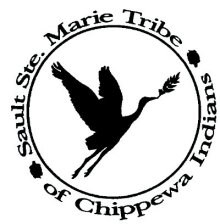NEWS RELEASE
SAULT STE. MARIE TRIBE OF CHIPPEWA INDIANS
************************* Lawsuit against Sault Tribe of Chippewa Indians dropped
Federal government drops appeal in land lawsuit
ST. IGNACE, MI - (January 19) - Last week, United States Court of Appeals for the 6th Circuit in Cincinnati granted the United States’ motion to voluntarily dismiss its appeal in a case concerning whether a parcel of land in St. Ignace taken into trust for the tribe was eligible for gaming under the Indian Gaming Regulatory Act (IGRA).
“The dismissal of the United States’ appeal of Judge Edgar’s ruling in favor of the tribe comes after a long struggle with the Department of Interior and the National Indian Gaming Commission (NIGC),” said Bruce Greene, attorney for the Sault Tribe.
“It is troubling that the tribe’s trustee took such a strident position about the replacement casino located only a few hundred feet from the location of the antiquated casino. Fortunately, Judge Edgar construed the law in a manner consistent with the tribe’s interpretation,” Greene said.
Last August, Judge Edgar, sitting in the U.S. district court for the western district of Michigan, ruled against the United States, the Department of the Interior and the NIGC, and in favor of the tribe.
The tribe has been operating in its new casino in St. Ignace since late 2007 under a preliminary injunction issued by the court in August 2007, which restrained the United States from taking any action to close the new casino, pending the outcome of the case.
“We are most gratified to be vindicated by the court regarding the eligibility of lands for gaming under IGRA,” said Sault Tribe Chairman Darwin 'Joe' McCoy.
“The tribe believed it was always operating within the law, and was surprised to learn that the Interior Department and the NIGC disagreed back in 2006. After a long court battle, the court agreed with the tribe,” continued McCoy. “With the dismissal of the appeal, there is no longer any legal cloud over the new casino in St. Ignace.”
IGRA is a comprehensive federal statute that regulates Indian gaming.
Under IGRA, gaming may not take place on lands taken into trust after October 17, 1988, unless the land falls within one of the exceptions: if the land is contiguous to the reservation on that date, or if the land is restored lands to a restored tribe.
On August 29, 2008, Judge Edgar ruled that the St. Ignace land underlying the tribe’s new, replacement casino is contiguous to the tribe’s reservation and, therefore, is eligible for casino gaming.
Beginning in 2003, the tribe made plans to replace its casino in St. Ignace.
The old casino was built in the mid 1980s on a parcel of land taken into trust in 1983 (the 1983 parcel).
Over the years, the tribe added to the original casino several times, and as a result, it had developed into a maze-like structure with numerous problems, including inadequate heating and ventilating, sewage disposal, restaurant facilities, and numerous other problems.
The tribe concluded that it was time to replace the Kewadin Shores Casino with a new facility.
The new casino was completed in 2006 and includes a hotel, state-of-the-art heating and ventilating equipment, new restaurant, and new lounge areas.
The casino is located partially on the 1983 parcel and partially on land taken into trust for the tribe in 2000 (the 2000 parcel).
The tribe’s position has always been that the 2000 parcel is eligible for gaming under IGRA.
IGRA allows gaming on land taken into trust after October 17, 1988 if the contiguous parcel was a reservation before that date.
Over a period of three years, the tribe attempted to convince the Department of the Interior and the NIGC that the 1983 parcel is a reservation within the meaning of IGRA.
The Department of the Interior and the NIGC disagreed.
That disagreement resulted in the tribe’s suit against the department and the NIGC, which was filed on November 9, 2006.
The Sault Tribe of Chippewa Indians owns and operates five Kewadin Casinos in Michigan’s Upper Peninsula - Sault Ste. Marie, St. Ignace, Hessel, Christmas and Manistique.
*************************
